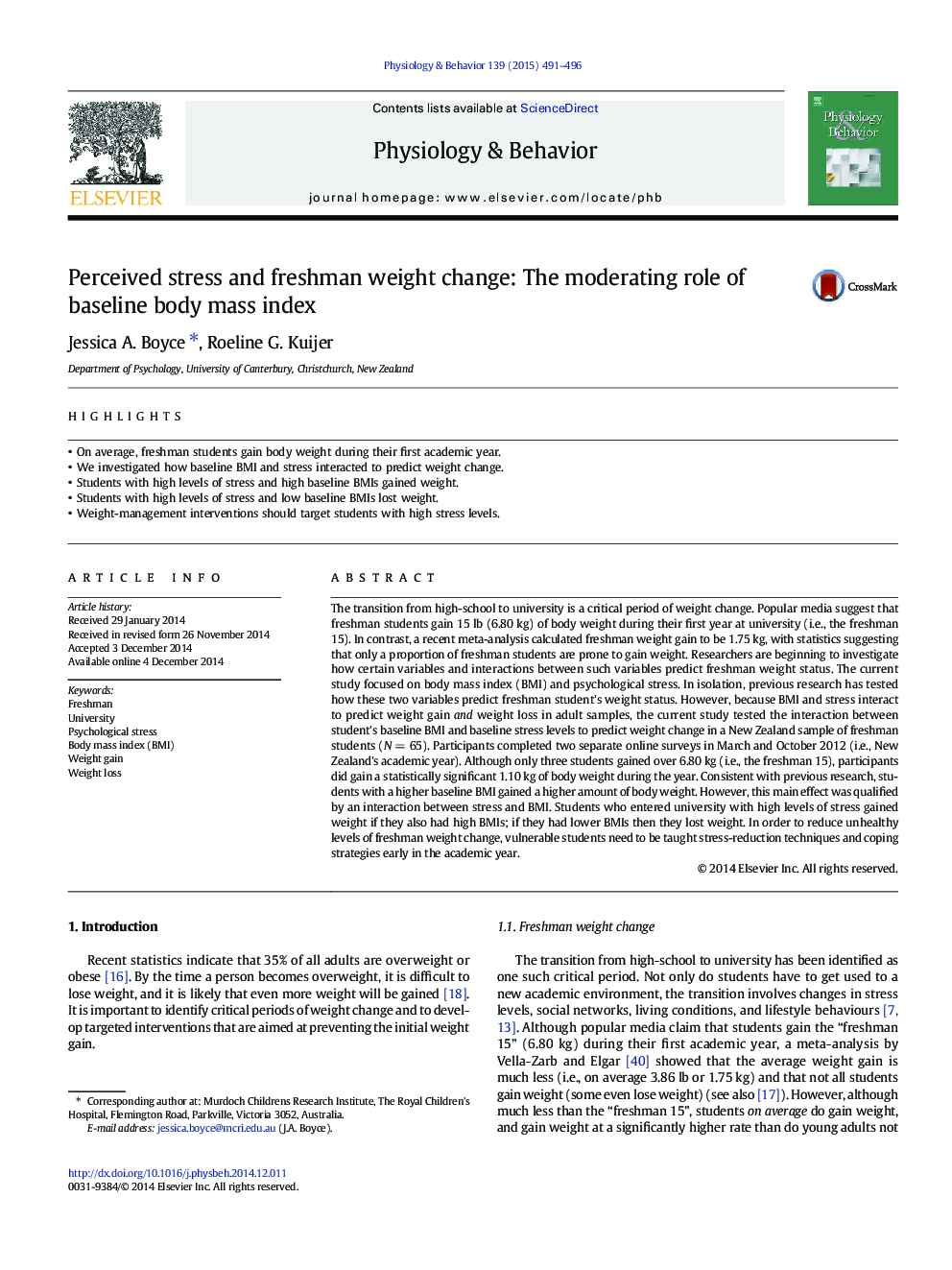| Article ID | Journal | Published Year | Pages | File Type |
|---|---|---|---|---|
| 5924026 | Physiology & Behavior | 2015 | 6 Pages |
Abstract
The transition from high-school to university is a critical period of weight change. Popular media suggest that freshman students gain 15Â lb (6.80Â kg) of body weight during their first year at university (i.e., the freshman 15). In contrast, a recent meta-analysis calculated freshman weight gain to be 1.75Â kg, with statistics suggesting that only a proportion of freshman students are prone to gain weight. Researchers are beginning to investigate how certain variables and interactions between such variables predict freshman weight status. The current study focused on body mass index (BMI) and psychological stress. In isolation, previous research has tested how these two variables predict freshman student's weight status. However, because BMI and stress interact to predict weight gain and weight loss in adult samples, the current study tested the interaction between student's baseline BMI and baseline stress levels to predict weight change in a New Zealand sample of freshman students (NÂ =Â 65). Participants completed two separate online surveys in March and October 2012 (i.e., New Zealand's academic year). Although only three students gained over 6.80Â kg (i.e., the freshman 15), participants did gain a statistically significant 1.10Â kg of body weight during the year. Consistent with previous research, students with a higher baseline BMI gained a higher amount of body weight. However, this main effect was qualified by an interaction between stress and BMI. Students who entered university with high levels of stress gained weight if they also had high BMIs; if they had lower BMIs then they lost weight. In order to reduce unhealthy levels of freshman weight change, vulnerable students need to be taught stress-reduction techniques and coping strategies early in the academic year.
Related Topics
Life Sciences
Biochemistry, Genetics and Molecular Biology
Physiology
Authors
Jessica A. Boyce, Roeline G. Kuijer,
